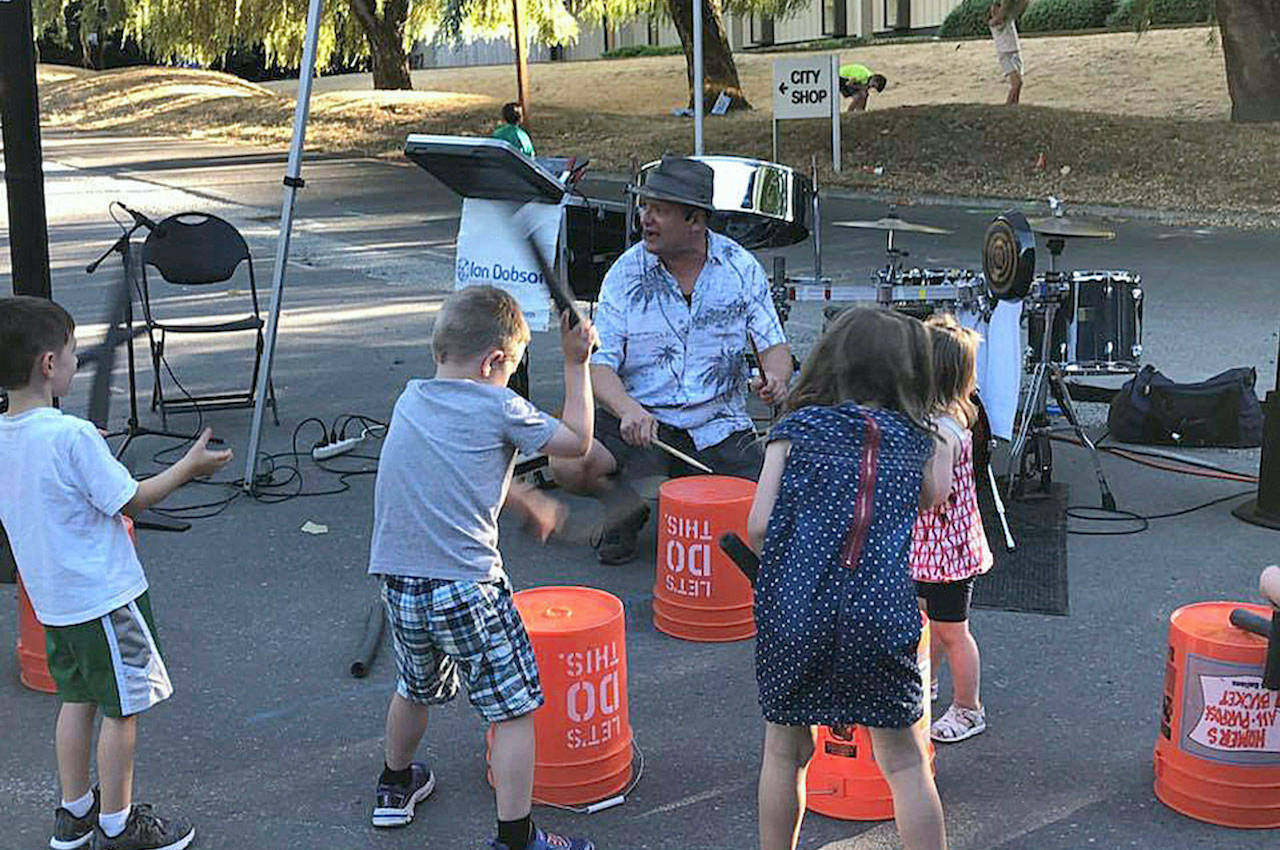The other day I ran into a neighbor and her son walking their dog down our street. We hadn’t met before, so I introduced myself. I told her it might be fun to have a neighborhood gathering so we could get to know each other better. She agreed, and mentioned there was a “National Night Out” coming up. Maybe we could do it then. We didn’t know the date, so we checked. Our timing was perfect.
Next Tuesday, Aug. 1, we will have a National Night Out event from 5 to 8 p.m. on our little street just off Island Crest Way. There are about a dozen houses on the street, and we’ll invite people to bring cookies, snacks and drinks. We’ll set up a few tables and chairs. It will be an informal get-acquainted gathering, just to be neighborly.
It seems to me that’s what’s been missing in this country in recent years, especially with the COVID pandemic. People didn’t get together as much. We stayed home and avoided neighbors. We stopped inviting friends over for dinner or drinks. That was understandable, but it had some unintended consequences. We need to reestablish connections, rebuild neighborhood bonds, be friends again. We all want to be better neighbors than we are.
NNO, according to its website (www.natw.org), is “an annual community-building campaign that promotes police-community partnerships and neighborhood camaraderie to make our neighborhoods safer, more caring places to live.”
Millions of neighbors, the site continues, take part in NNO activities in thousands of communities in all 50 states on the first Tuesday in August. “Neighborhoods host block parties, parades, cookouts and various other community events. Some do safety demonstrations, educational seminars, visits from emergency personnel and much more.”
The origin of NNO was in a suburb of Philadelphia in 1970, when a citizen volunteer for a community watch program reached out to other towns and discovered that many had similar efforts but had no way to connect or coordinate. In 1981, he established the National Association of Town Watch (NATW) which grew steadily. In 1984, National Night Out was introduced, using an already established network of neighborhood watch groups, law-enforcement agencies, civic groups, crime-prevention organizations and volunteers. The first NNO had 2.5 million participants in 400 communities across 23 states.
“The best way to build a safer community is to know your neighbors and your surroundings,” the website states. “National Night Out triumphs over a culture that isolates us from each other and allows us to rediscover our own communities.”
It now involves 38 million people in 17,000 communities, with events in all 50 states. A map lists the towns in each state that participate. Washington has 162 cities listed, including Seattle, Bellevue and Mercer Island. Our city’s website notes that neighborhood events “can be as simple as backyard cookouts or block parties, it’s up to you.” If desired, community members can register online to host an event and the city may arrange a visit from police, emergency management or fire department personnel to make brief presentations. Contact Amanda Keverkamp at emergencymanagement@mercerisland.gov.
Our neighborhod gathering will be pretty informal, although MI Police Chief Ed Holmes (a fellow Rotarian), promised to come. We would welcome that. We’ll have cookies.
This idea resonated with me because I have been involved with four different neighborhood associations over the past 50 years. While living on Capitol Hill in Washington, D.C., in the 1970s, I helped organize the Stanton Park Neighborhood Association to build community ties in a very diverse area and to help fight crime problems. When I moved to Seattle, I became a leader of a North Seattle neighborhood group that dealt with issues such as tree trimming for view preservation. It was sometimes contentious, but we brought neighbors together and found ways to compromise. On Mercer Island, I have been active in the Blackberry Beach Association, a small group of six families who share waterfront on Lake Washington. I have also been on the board of a Home Owners Association (HOA) at Suncadia, where we own a condominium.
In each of these cases, I have learned that if neighbors get to know each other and address common problems in a civil and respectful way, everyone benefits. We will always have some disagreements and different priorities, but we can’t we still get along?
Robert Frost wrote that “Good fences make good neighbors.” But he also wrote: “Something there is that doesn’t love a wall.” We may need some fences and walls between neighbors, but there should be ways to breach them sometimes and have face-to-face conversations. We may argue on a few things, but we can talk about the kids and grandkids, travel plans, pets – and maybe move on to views, traffic, crime, litter, potholes, etc.
National Night Out can’t solve all the nation’s or any community’s problems, but it’s a good way to rebuild bonds. And maybe sample some great cookies.
John Hamer is a retired editorial writer and columnist for The Seattle Times who now lives on Mercer Island with his wife. Email: jhamer46@gmail.com.



